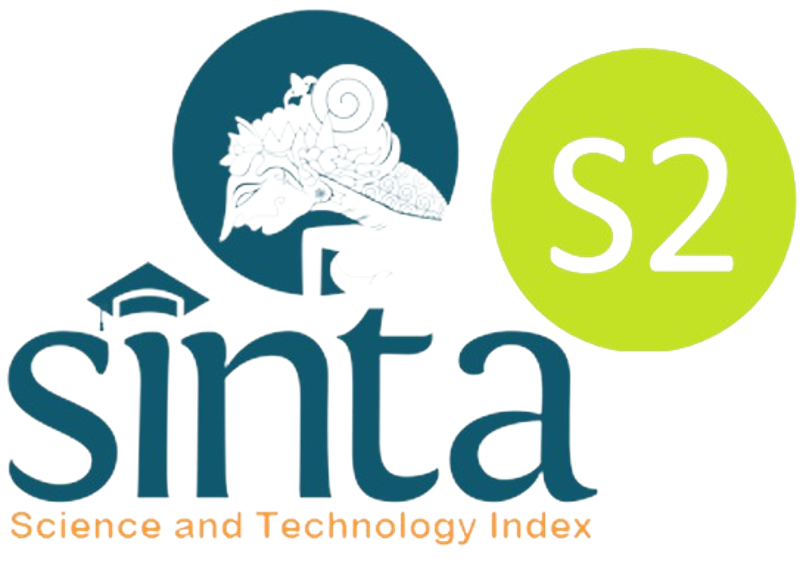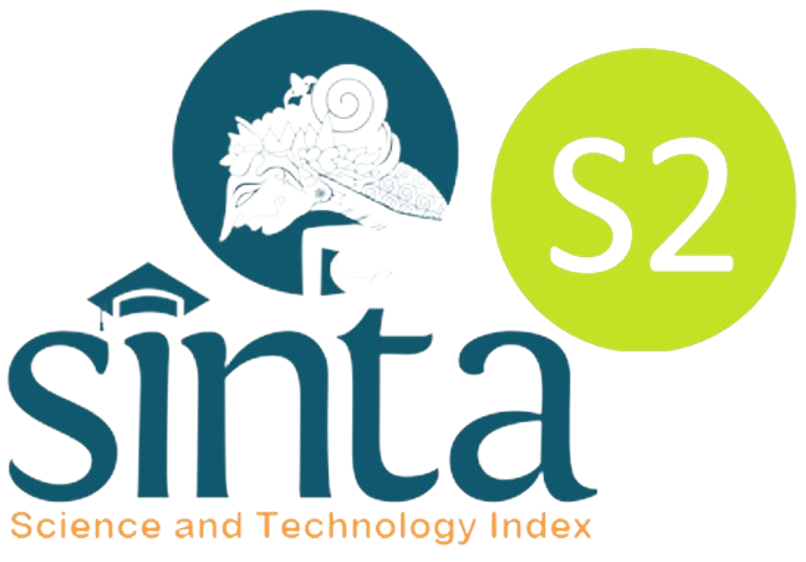Future Prospect of Gamification-Based Mobile in Physics Learning
DOI:
https://doi.org/10.26740/jpps.v12n1.p40-55Keywords:
Education, Gamification, Mobile learning, Physics learningAbstract
The development of gamification in the world of education today continues to grow. This study aims to find trends, distributions, contributions, and effects of gamification research in various sectors, especially in education, in the last ten years. The Research uses quantitative Research in the form of bibliometric analysis using the Scopus database with the help of visualization from VOSViewer. The results of this analysis show that in 2012-2021 (the last ten years), gamification increased yearly. In addition, the distribution and contribution of gamification are very beneficial for the world of education, with the note that it must be prepared carefully to produce positive outputs. For further Research, it is expected to continue to develop the field of gamification-based mobile in physics learning so that it can be an alternative to various educational levels included in physics learning.
Downloads
References
Ahmad, A., Zeshan, F., Khan, M. S., Marriam, R., Ali, A., & Samreen, A. (2020). The impact of gamification on learning outcomes of computer science majors. ACM Transactions on Computing Education (TOCE), 20(2), 1-25. https://doi.org/10.1145/3383456
Ahmed, H. D., & Asiksoy, G. (2021). The effects of gamified flipped learning method on student's innovation skills, self-efficacy towards virtual physics lab course and perceptions. Sustainability, 13(18), 1-18. https://doi.org/10.3390/su131810163
Aksnes, D. W., & Sivertsen, G. (2019). A criteria-based assessment of the coverage of scopus and web of science. Journal of Data and Information Science, 4(1), 1-21. https://doi.org/10.2478/jdis-2019-0001
Arruzza, E., & Chau, M. (2021). A scoping review of randomised controlled trials to assess the value of gamification in the higher education of health science students. Journal of Medical Imaging and Radiation Sciences, 52(1), 137-146. https://doi.org/10.1016/j.jmir.2020.10.003
Bravo, R., Catalan, S., & Pina, J. M. (2021). Gamification in tourism and hospitality review platforms: How to RAMP up users' motivation to create content. International Journal of Hospitality Management, 99, 1-16. https://doi.org/10.1016/j.ijhm.2021.103064
Buckley, P., & Doyle, E. (2016). Gamification and student motivation. Interactive Learning Environments, 24(6), 1162-1175. https://doi.org/10.1080/10494820.2014.964263
Cardinot, A., & Fairfield, J. A. (2022). Game-based learning to engage students with physics and astronomy using a board game. Research Anthology on Developments in Gamification and Game-Based Learning, 785-801. https://doi.org/10.4018/978-1-6684-3710-0.ch035
Dichev, C., Dicheva, D., Angelova, G., & Agre, G. (2014). From gamification to gameful design and gameful experience in learning. Cybernetics and Information Technologies, 14(4), 80-100. https://doi.org/10.1515/cait-2014-0007
Fadhli, M., Brick, B., Setyosari, P., Ulfa, S., & Kuswandi, D. (2020). A meta-analysis of selected studies on the effectiveness of gamification method for children. International Journal of Instruction, 13(1), 845-855. https://doi.org/10.29333/iji.2020.13154a
Fan, J., & Wang, Z. (2020). The impact of gamified interaction on mobile learning APP users' learning performance: the moderating effect of users' learning style. Behaviour & Information Technology, 1-14. https://doi.org/10.1080/0144929X.2020.1787516
Fu, Y., & Wang, J. (2021). Assessing mainstream pre-service teachers' self-efficacy to teach English language learners. International Journal of Instruction, 14(3), 153-174. https://doi.org/10.29333/iji.2021.1439a
Gomes, C. (2020). Outside the classroom: The language of english and its impact on international student mental wellbeing in australia. Journal of International Students, 10(4), 934-953. https://doi.org/10.32674/jis.v10i4.1277
Goyal, K., & Kumar, S. (2021). Financial literacy: A systematic review and bibliometric analysis. International Journal of Consumer Studies, 45(1), 80-105. https://doi.org/10.1111/ijcs.12605
Halevi, G., Moed, H., & Bar-Ilan, J. (2017). Suitability of google scholar as a source of scientific information and as a source of data for scientific evaluation-Review of the literature. Journal of Inform Metrics, 11(3), 823-834. https://doi.org/10.1016/j.joi.2017.06.005
Hamari, J., Koivisto, J., & Sarsa, H. (2014). Does gamification work? A literature review of empirical studies on gamification. 2014 47th Hawaii International Conference On System Sciences, 3025-3034. https://doi.org/10.1109/HICSS.2014.377
Hariadi, B., Jatmiko, B., Sunarto, M. J., Prahani, B. K., Sagirani, T., Amelia, T., & Lemantara, J. (2022). Higher order thinking skills based learning outcomes improvement with blended web mobile learning model. International Journal of Instruction, 15(2), 565-578. https://doi.org/10.29333/iji.2022.15231a
Heksarini, A., & Putri, A. S. (2022). The impact of gamification on customer engagement and customer loyalty from users of shopee in Samarinda. INNOVATION, 18, 112-117. http://dx.doi.org/10.29264/jinv.v18i0.11245
Huang, R., Ritzhaupt, A. D., Sommer, M., Zhu, J., Stephen, A., Valle, N., & Li, J. (2020). The impact of gamification in educational settings on student learning outcomes: a meta-analysis. Educational Technology Research and Development, 68(4), 1875-1901. https://doi.org/10.1007/s11423-020-09807-z
Huotari, K., & Hamari, J. (2017). A definition for gamification: anchoring gamification in the service marketing literature. Electronic Markets, 27(1), 21-31. https://doi.org/10.1007/s12525-015-0212-z
Iquira, D., Sotelo, B., & Sharhorodska, O. (2019). A gamified mobile-based virtual reality laboratory for physics education: results of a mixed approach. Communications in Computer and Information Science, 1034, 247-254. https://doi.org/10.1007/978-3-030-23525-3_32
Julia, J., Afrianti, N., Ahmed S., K., Supriyadi, T., Dolifah, D., Isrokatun, I., & Ningrum, D. (2020). Flipped classroom educational model (2010-2019): a bibliometric study. European Journal of Educational Research, 9(4), 1377-1392. https://doi.org/10.12973/eu-jer.9.4.1377
Kalogiannakis, M., Papadakis, S., & Zourmpakis, A. I. (2021). Gamification in science education. A systematic review of the literature. Education Sciences, 11(1), 22-30. https://doi.org/10.3390/educsci11010022
Katsaris, I., & Vidakis, N. (2021). Adaptive e-learning systems through learning styles: a review of the literature. Advances in Mobile Learning Educational Research, 1(2), 124-145. https://doi.org/10.25082/AMLER.2021.02.007
Koleva, Z. (2021). Application of gamification in agriculture. Journal Socio-Economic Analyses, 13(1), 58-67. https://doi.org/10.54664/EGOK3707
Lister, M. (2015). Gamification: The effect on student motivation and performance at the post-secondary level. Issues and Trends in Educational Technology, 3(2), 1-22. https://doi.org/10.2458/azu_itet_v3i2_lister
Martens, A., & Mueller, W. (2016). Gamification-a structured analysis. In 2016 IEEE 16th International Conference on Advanced Learning Technologies, 138-142. https://doi.org/10.1109/ICALT.2016.72
McCabe, M. J., & Snyder, C. M. (2014). Identifying the effect of open access on citations using a panel of science journals. Economic Inquiry, 52(4), 1284-1300. https://doi.org/10.1111/ecin.12064
Nada, N. Q., Saadah, U. K., Anam, A. K., Wibowo, S., & Novita, M. (2019). Design on 'FunPhy: fun physics' educational game apps using agile extreme programming. Journal of Physics: Conference Series, 1179(1), 1-9. https://doi.org/10.1088/1742-6596/1179/1/012071
Nurtanto, M., Kholifah, N., Ahdhianto, E., Samsudin, A., & Isnantyo, F. D. (2021). A review of gamification impact on student behavioral and learning outcomes. International Journal of Interactive Mobile Technologies, 15(21), 22-36. https://doi.org/10.3991/ijim.v15i21.24381
Poondej, C., & Lerdpornkulrat, T. (2019). Gamification in e-learning: a moodle implementation and its effect on student engagement and performance. Interactive Technology and Smart Education, 17(1), 56-66. https://doi.org/10.1108/ITSE-06-2019-0030
Prahani, B. K., Amiruddin, M. Z. B., Suprapto, N., Deta, U. A., & Cheng, T. H. (2022a). The trend of physics education research during covid-19 pandemic. International Journal of Educational Methodology, 8(3), 517-533. https://doi.org/10.12973/ijem.8.3.517
Prahani, B. K., Amiruddin, M. Z., Jatmiko, B., Suprapto, N., & Amelia, T. (2022b). Top 100 cited publications for the last thirty years in digital learning and mobile learning. International Journal of Interactive Mobile Technologies, 16(8), 18-33. https://doi.org/10.3991/ijim.v16i08.29803
Sailer, M., & Homner, L. (2020). The gamification of learning: a meta-analysis. Educational Psychology Review, 32(1), 77-112. https://doi.org/10.1007/s10648-019-09498-w
Saleem, A. N., Noori, N. M., & Ozdamli, F. (2021). Gamification applications in E-learning: A literature review. Technology, Knowledge and Learning, 11(3), 1-21. https://doi.org/10.1007/s10758-020-09487-x
Seaborn, K., & Fels, D. I. (2015). Gamification in theory and action: a survey. International Journal of Human-Computer Studies, 74, 14-31. https://doi.org/10.1016/j.ijhcs.2014.09.006
Shyu, H. Y., & Chou, Y. H. (2014). Game-based APP in teaching newton's three laws of motion for high schools students. Proceedings of the 22nd International Conference on Computers in Education, ICCE 2014, 636-640.
Smith, K., Shull, J., Heaney, P. S., Dean, A. W., & Michaeli, J. G. (2017). Overview of game and content design for a mobile game that will prepare students in calculus and physics prerequisites to the engineering curriculum. ASEE Annual Conference and Exposition, Conference Proceedings 2017-June, 1-8. https://doi.org/10.18260/1-2--28729
Sood, S. K., Kumar, N., & Saini, M. (2021). Scientometric analysis of literature on distributed vehicular networks: VOSViewer visualization techniques. Artificial Intelligence Review, 54(8), 6309-6341. https://doi.org/10.1007/s10462-021-09980-4
Toda, A. M, Valle, P. H., & Isotani, S. (2017). The dark side of gamification: an overview of negative effects of gamification in education. Researcher Links Workshop: Higher Education For All, 143-156. https://doi.org/10.1007/978-3-319-97934-2_9
Toda, A. M., Palomino, P. T., Oliveira, W., Rodrigues, L., Klock, A. C., Gasparini, I., & Isotani, S. (2019). How to gamify learning systems? an experience report using the design sprint method and a taxonomy for gamification elements in education. Journal of Educational Technology & Society, 22(3), 47-60.
Treiblmaier, H., Putz, L. M., & Lowry, P. B. (2018). Setting a definition, context, and theory-based research agenda for the gamification of non-gaming applications. Association for Information Systems Transactions on Human-Computer Interaction, 10(3), 129-163. https://doi.org/10.17705/1thci.00107
Downloads
Published
How to Cite
Issue
Section
License
Copyright (c) 2022 JPPS (Jurnal Penelitian Pendidikan Sains)

This work is licensed under a Creative Commons Attribution-ShareAlike 4.0 International License.
 Abstract views: 412
,
Abstract views: 412
, PDF Downloads: 363
PDF Downloads: 363












